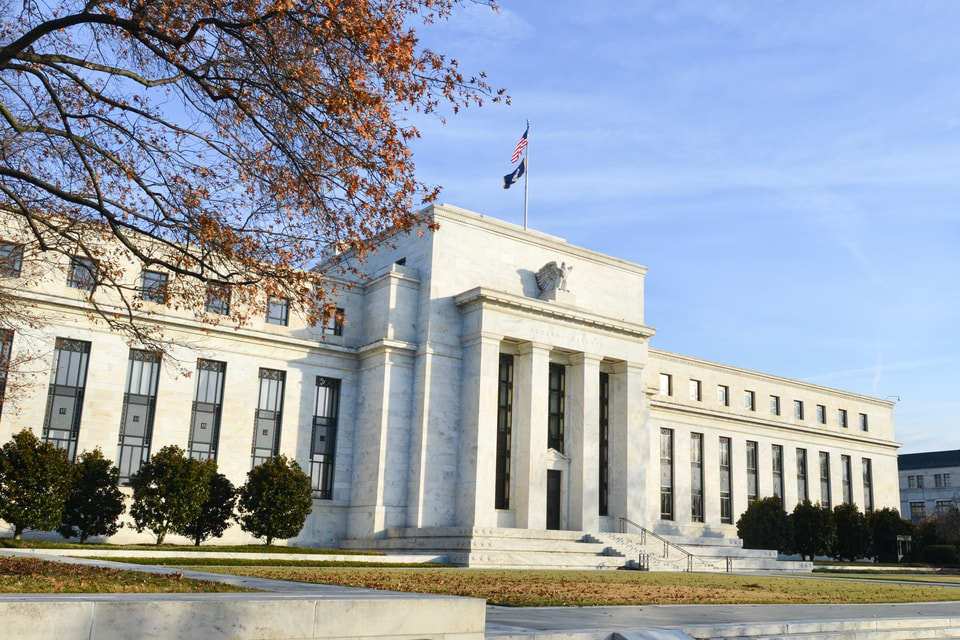Third Way Take Published October 23, 2017 · Updated October 23, 2017 · 4 minute read
The FSOC Just Proved SIFI Designation is No “Hotel California”
Emily Liner

AIG, the insurance giant whose epic mismanagement may have done more to exacerbate the last decade’s financial collapse than any other institution, was just taken off the federal government’s special watch list. While some are horrified that this guilty actor was given a reprieve by the Financial Stability Oversight Council, we should be glad. It proves Dodd-Frank is working.
The Financial Stability Oversight Council (FSOC) has the power to designate nonbanks in the financial sector, like insurance companies, with a label called Systemically Important Financial Institutions (or SIFIs). Being a SIFI also comes with an additional layer of regulation in order to prevent spillover effects across the economy if the company has financial problems.
Dodd-Frank’s opponents are fond of referring to the FSOC designation process as “Hotel California”—a nod toward the famous Eagles’ song. The impression that “you can never leave” SIFI regulation has fueled House Republicans’ attempts to undermine the FSOC, one of the most important legacies of the Dodd-Frank law.
It turns out, however, that a nonbank can leave SIFI designation if it demonstrates that its financial distress would not pose a threat to the United States’ financial stability. That’s exactly what happened at the last FSOC meeting, when the Council voted to remove AIG’s SIFI designation after the company slimmed down to half its pre-crisis size.
There’s no question that AIG should have been placed under federal supervision after the financial crisis. Its risky behavior trading exotic securities put our entire economy in danger, giving the government no choice but to give the company an emergency loan to prevent further damage. And, at the time, AIG was huge, with over $1 trillion in total assets in 2008.
Since then, AIG has made a series of changes to root out the parts of the business that didn’t make sense in a traditional insurance company. That’s one reason why, when AIG’s SIFI designation came up for its annual review this year, the FSOC voted to rescind the label. AIG will continue to be regulated at the state level, which is how insurance supervision is typically done. Furthermore, the FSOC can still make recommendations to industry regulators to impose higher standards if need be.
This new development at the FSOC shows that the SIFI designation process is working. As Janet Yellen, Chair of the Federal Reserve and a voting member of the FSOC, put it, designation “is not meant to be a one-way street.” Dodd-Frank always intended for SIFI designations to be a dynamic process that phases firms in and out as their situations change. That’s why annual reviews of the nonbank SIFIs were written into Dodd-Frank in the first place. FSOC also has another tool in Dodd-Frank for making SIFI determinations: whether the activities, concentration, and interconnectedness, among other factors, would lead to ripple effects through the financial sector if the organization failed. That standard, however, has not yet been exercised by the FSOC.
Unfortunately, some lawmakers on the extremes ignore the flexibility in Dodd-Frank because they would rather rip up the law altogether. The Financial CHOICE Act, for example, would completely repeal FSOC’s power to make any SIFI designations of nonbanks or to make recommendations to their regulators—meaning that a huge chunk of the financial sector wouldn’t face any extra scrutiny.
Instead of entertaining radical proposals like this, we should work toward bipartisan fixes to make the law work better. A great example is H.R. 3110, the Financial Stability Oversight Council Insurance Member Continuity Act, which recently became law. This commonsense tweak to Dodd-Frank ensures that the FSOC always has a representative with insurance expertise. It is the result of leaders from both parties working together, including Chairman Mike Crapo and Ranking Member Sherrod Brown of the Senate Banking Committee and Ranking Member Maxine Waters and Congressman Randy Hultgren of the House Financial Services Committee. Congress may need to take similar legislative action to clarify whether a recusal counts in the vote tally for designation and de-designation, since that was an area of contention during this FSOC meeting.
It always will be important to hold the policymakers on the FSOC accountable for the decisions they make in designating or de-designating companies, especially since its membership is already beginning to turn over with new administration appointees. But it’s clear that Dodd-Frank gives the Council plenty of room to exercise discretion—so maybe we should “Take It Easy” instead and let the law do its job.
